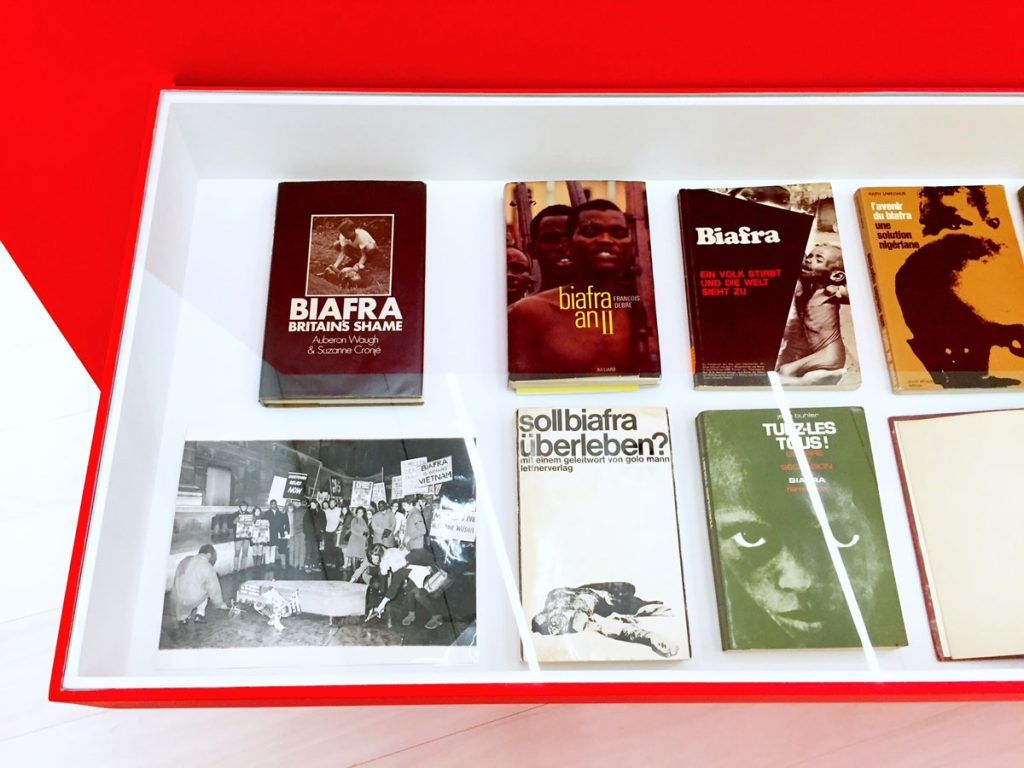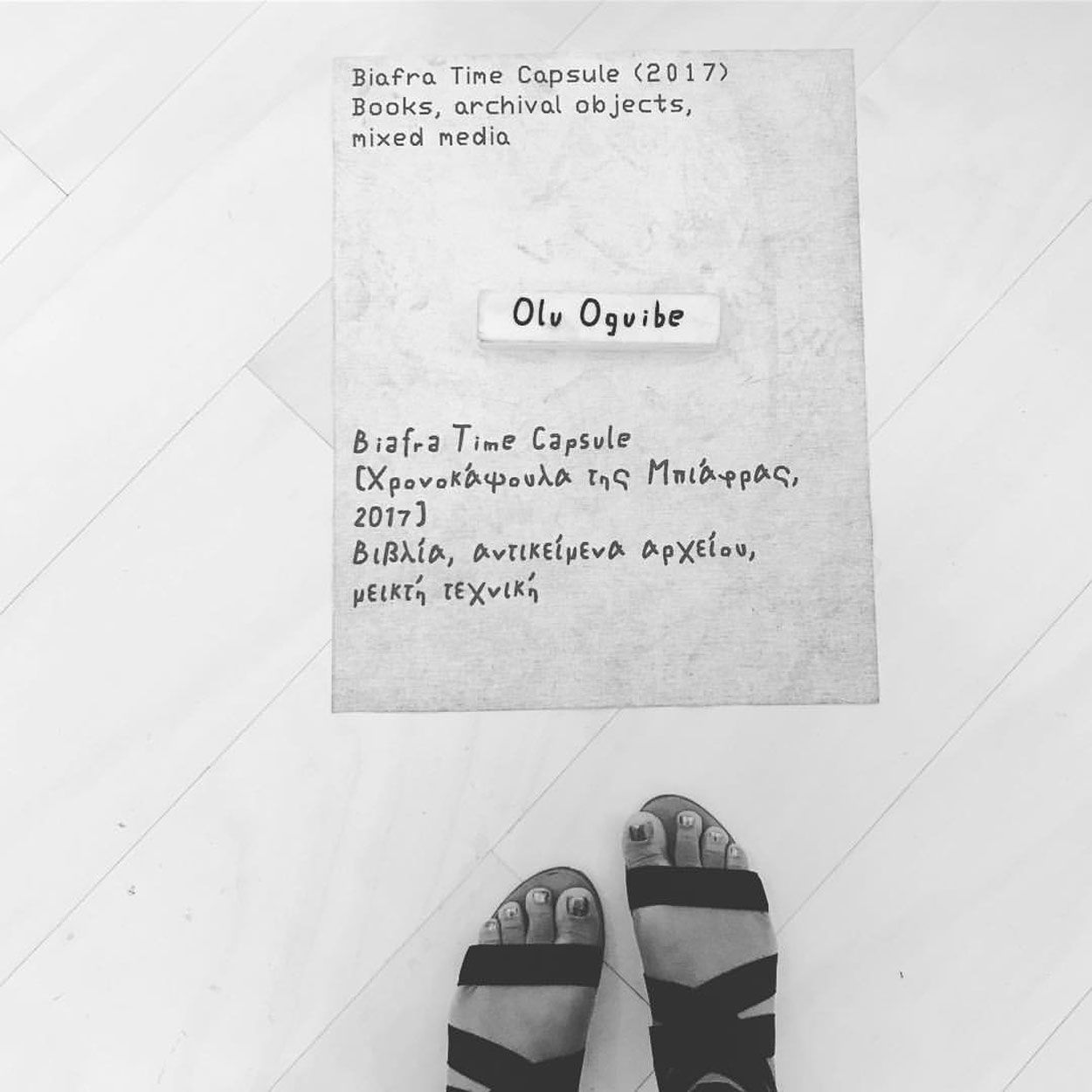OLU OGUIBE
A Brief Statement on Art and Genocide
As a genocide survivor who spent the first few years of life in the thick of the tragedy of Biafra almost sixty years ago, one has a great deal to say in the face of the monumental tragedy now unfolding in Palestine, but, the words to say it!
As an artist and an intellectual one equally feels an almost traditional burden of responsibility.
In times like these artists and intellectuals try to respond in predictable ways. Intellectuals try to find meaning in the cruelty and calamity, while artists try to find ways to respond in or through their work. Poets write poems, scholars their studies and novelists polemics. Painters respond with paintings like Picasso did with Guernica.
These are professional modes of response and they’re understandable. Lately, words from the narratives of the ministry of Jesus in Jerusalem repeatedly go through my mind: Neither silver nor gold have I, but what I have, I give to you.

There is, still, another way to respond, more basic and, perhaps, even more profound, and that is as humans; as people touched by the reality of injustice and immeasurable suffering. In its passive form this is called empathy. However, empathy need not be passive.
In the early 20th Century artists and intellectuals, not content to merely empathize or write or make paintings, poured into Spain from every corner of the globe to take up arms in defense of the Spanish people and their republic.
Novelists, poets, painters, academics, philosophers, seemed compelled by a conviction which Mahmoud Darwish, the national poet of Palestine, would later ironically and uncannily put in words in the opening lines of his poem, “The Wandering Guitar Player”
A painter he was,
But pictures,
Normally,
Open no doors,
Do not break them down…

These artists and intellectuals felt that the Spanish people needed more than paintings and poems; they needed feet on the ground and guns and bayonets.
But that was a different era.
A few decades later, during my own people’s calamity in Biafra, artists responded through philanthropy and other gestures. In different parts of the world, musicians held fundraising concerts to benefit the suffering and famished. In Eastern Europe a group of young artists named their group after Biafra. In the United States a progressive punk musician changed his name to Biafra. It was no longer the Age of artists and intellectuals taking up arms like they did in Spain.
What else they did not do during the genocide in Biafra is wait to respond and reflect after the fact.
As history sadly repeats itself, there is, yet, another genocide now unfolding, this time in Palestine, one which, by the way, is only an acceleration of a genocide that has been ongoing for a century. How shall artists and intellectuals respond in the face of this genocide?
Shall we write, philosophize, and polemicize? Shall we respond with paintings knowing that paintings, as the poet of Palestine once noted, “normally, open no doors, do not break them down”? Will we wait until after the fact and then, copiously intellectualize, and ponder the possibility or otherwise of art “after Gaza”?
One thing is certain: While artists around the world undeniably continue to share their views through social media and other avenues, so far the official “art world” is silent in the face of this genocide. Mark that as a note for history.
While many prominent pop musicians raised funds for the sick and famished in Biafra, and some, like John Lennon, openly condemned their own governments for their complicity in the genocide in Biafra,
most leading pop musicians of today’s generation are eerily silent on the genocide in Gaza.
Other than through often guarded comments on social media, so are most prominent visual artists.
Is there a reason, or reasons, perhaps? Will this change, and if so, when?
As a genocide survivor, one certainly has a lot to say in response to the genocide currently unfolding in Palestine, But, in the face of such monumental tragedy, are words enough?
August 24, 2025
